- How can you get out of a non-compete?
- Are non-competes enforceable for contractors?
- How are non-competes enforced?
Non-Compete Agreement Samples
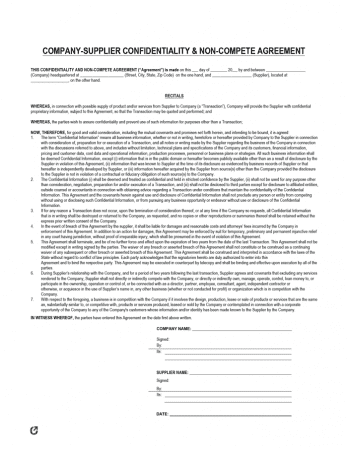
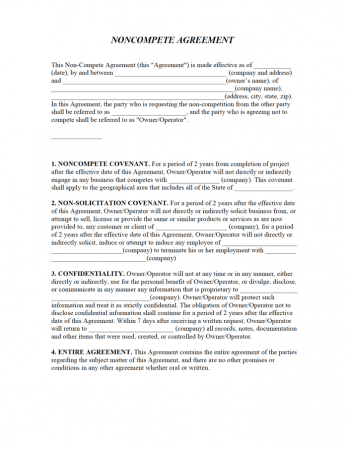
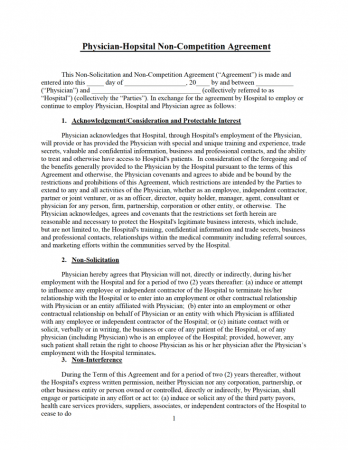
What is a Non-Compete Agreement?
Non-compete agreements limit an employee’s actions and possible future employment after leaving a company. Types of activities include:
- Disclosing trade secrets or proprietary information;
- Starting a similar company;
- Working for a competing business; or
- Disparaging the company’s reputation to customers and clientele.
Typically, high-level employees, such as directors, executives, owners, or others with specialized knowledge, will sign a non-compete agreement.
Which States Prohibit Non-Compete Agreements?
Non-Compete Agreement Templates
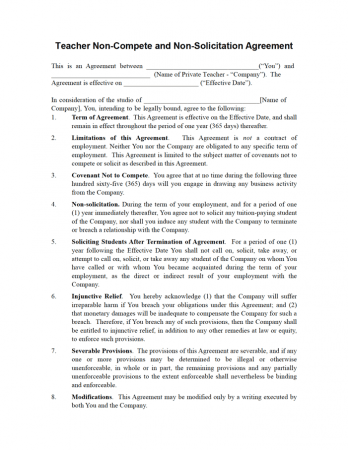
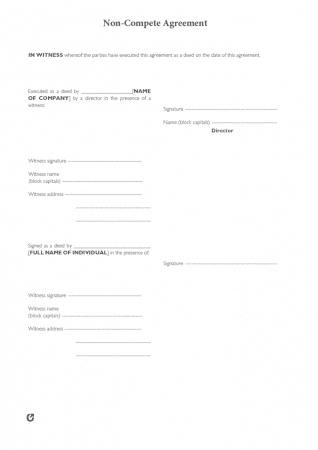
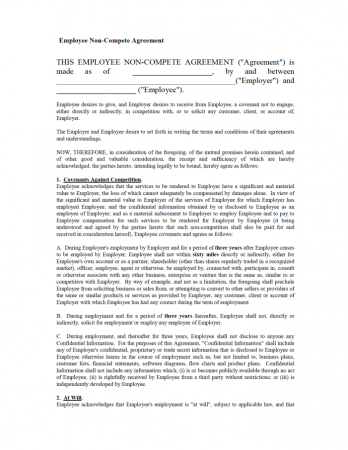
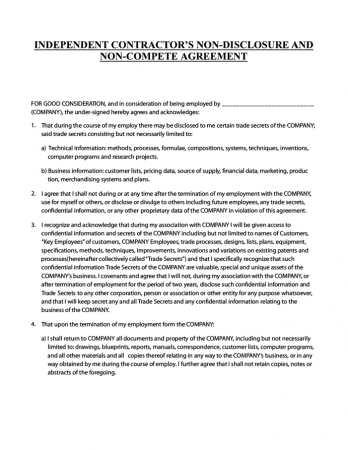
What to Include in a Non-Compete
Employers propose a non-compete agreement to protect their relationship with customers and confidential business information. While it limits what an employee can do during and after working for the company, it must do so within reason. Otherwise, courts might not enforce the agreement.
To be valid, non-compete agreements must have reasonable definitions for time, region, and competitive work or behavior.
- Time. There must be a time limit the employee is under contract, such as one or two years after the employment relationship ends. Non-compete agreements that last many years or are indefinite may severely prohibit an employee’s right to work, making it unenforceable.
- Region. The contract must state which geographical area the employee is restricted to work. While the size of the region may depend on the industry and the company’s reach, it must also be reasonable.
- Definition of competition. If the contract identifies specific companies or types of businesses that are actual competitors, it is more likely that a court will uphold the non-compete agreement. A vague definition of competitors does not suffice.
The non-compete agreement must also consider public interest. It cannot prohibit an employee from working at a company against public interest. For instance, if a nurse ends employment at one hospital, the non-compete agreement cannot deny the nurse from working at a nearby hospital with a nursing shortage. Doing so would be in opposition to public interest.
Non-Compete Forms
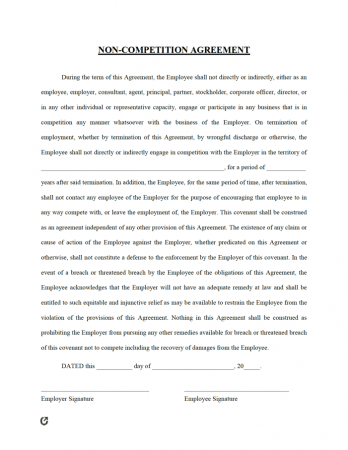
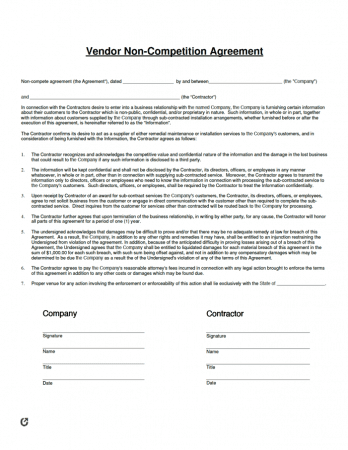
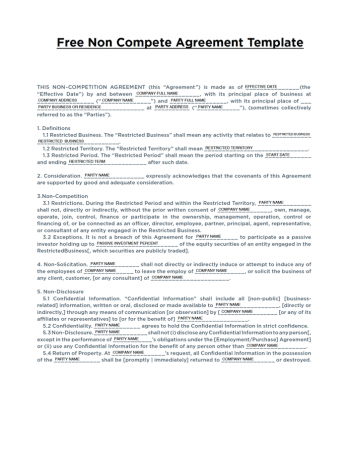
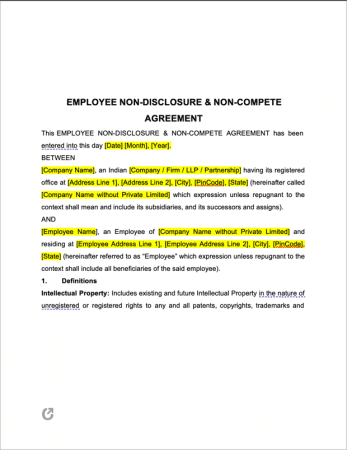
Can I Refuse to Sign a Non-Compete Agreement?
Frequently Asked Questions
Non-compete agreements can be complex. Here are some answers to frequently asked questions.
How can you get out of a non-compete?
First, identify if it is enforceable. If the provisions are too broad, place undue hardship on the employee, or conflict with public interest, the contract may not be valid.
Next, consider if the contract offered sufficient consideration. Consideration means the employee was given something valuable in exchange for the non-compete agreement. For example, an employer may grant employment to an individual upon signing the non-compete agreement. This is sufficient consideration because the job itself is valuable. But if an employee signed a non-compete agreement after being hired and did not receive anything valuable in return, it may not be enforceable.
If, after reviewing the contract and it appears to be valid, consider discussing with the employer to release the non-compete agreement. If the employee and employer agree to the release, putting it in writing will protect both parties.
Are non-competes enforceable for contractors?
It depends. By definition, independent contractors are not employees, therefore they are not under the same obligations as employees. They often work for several companies within their field. Consequently, companies cannot limit them from future work with competing businesses. However, a court may enforce a non-compete agreement if a contractor engages in activity that a court finds directly competing with the current company. Starting a competing business while working for a company and using their trade secrets may violate the non-compete agreement.
How are non-competes enforced?
Non-competes are enforced in different ways. Many state laws have evolved over the years, and courts have restricted the enforceability of non-compete agreements. California and Oregon, for example, have passed statutes that narrowly limit the circumstances under which a non-compete agreement can be enforced. Some states, such as Virginia, have banned non-compete agreements for low-wage workers.
However, courts can still enforce a non-compete agreement under the right circumstances. Therefore, it is wise to understand a company’s non-compete clause before taking action that may go against the agreement.